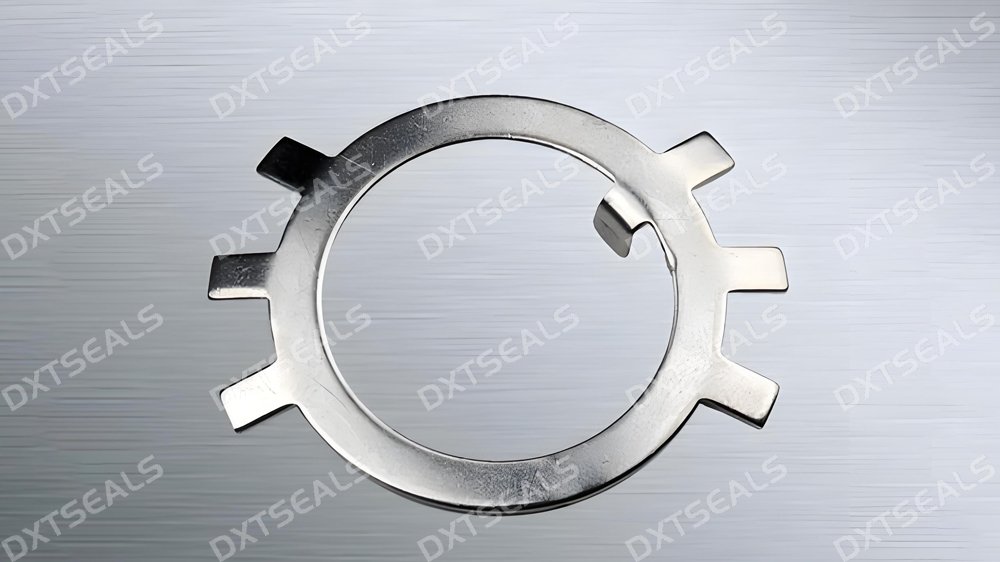
In the sealing industry, the support structure is just as important as the sealing element itself. A strong and durable support structure ensures that seals remain in place, withstand pressure, and resist deformation during operation. Two of the most commonly used metals for sealing support components are carbon steel and alloy steel.
This article from DXTSEALS analyzes the performance differences between carbon steel and alloy steel, helping engineers and buyers choose the right material for their sealing applications.
1. Carbon Steel: Cost-Effective and Widely Available
-
Key Properties:
-
Composition: Primarily iron with carbon (up to 2%)
-
High strength-to-cost ratio
-
Good machinability and weldability
-
Widely available in the market
-
-
Limitations:
-
Lower corrosion resistance compared to alloy steel
-
May require surface treatments (plating, coating, or painting) to extend service life
-
Performance may decline in high-temperature or corrosive environments
-
👉 Applications in Sealing:
Carbon steel is often used in standard sealing support rings, flanges, and structural components where cost-efficiency is crucial, and the environment is not highly corrosive.
2. Alloy Steel: Enhanced Strength and Resistance
-
Key Properties:
-
Contains alloying elements such as chromium, nickel, molybdenum, or vanadium
-
Superior mechanical strength compared to carbon steel
-
Better corrosion and wear resistance
-
Improved toughness and fatigue resistance under high stress
-
-
Limitations:
-
Higher cost than carbon steel
-
Machining and fabrication may require specialized techniques
-
👉 Applications in Sealing:
Alloy steel is widely applied in high-pressure sealing systems, dynamic sealing support structures, and heavy-duty industrial applications, especially where wear resistance and long service life are priorities.
3. Direct Comparison: Carbon Steel vs Alloy Steel
| Property | Carbon Steel | Alloy Steel |
|---|---|---|
| Strength | Good for standard applications | Higher, suitable for demanding environments |
| Corrosion Resistance | Moderate, needs coating/protection | Excellent, especially with Cr/Ni/Mo elements |
| Wear Resistance | Fair | High |
| Temperature Resistance | Moderate | Excellent |
| Cost | Lower | Higher |
| Best Uses | General sealing supports, cost-sensitive | High-pressure, corrosive, or heavy-duty sealing |
4. How to Choose the Right Material for Sealing Support Structures
-
Select Carbon Steel if:
-
Budget is limited
-
The sealing system operates in a mild environment
-
Cost efficiency outweighs extreme performance needs
-
-
Select Alloy Steel if:
-
The system requires high strength, fatigue resistance, and corrosion protection
-
The application involves high pressure, temperature, or aggressive media
-
Long-term reliability is more critical than initial cost
-
5. Conclusion
Both carbon steel and alloy steel have their advantages in sealing support structures.
-
Carbon Steel: Affordable, easy to machine, suitable for standard sealing supports.
-
Alloy Steel: Stronger, more durable, ideal for high-pressure and demanding sealing environments.
At DXTSEALS, we provide custom sealing support structures made from carbon steel, alloy steel, and other advanced materials, ensuring that each component delivers optimal performance, durability, and reliability.
📩 Contact DXTSEALS today to discuss your specific sealing requirements and get expert material selection advice.
